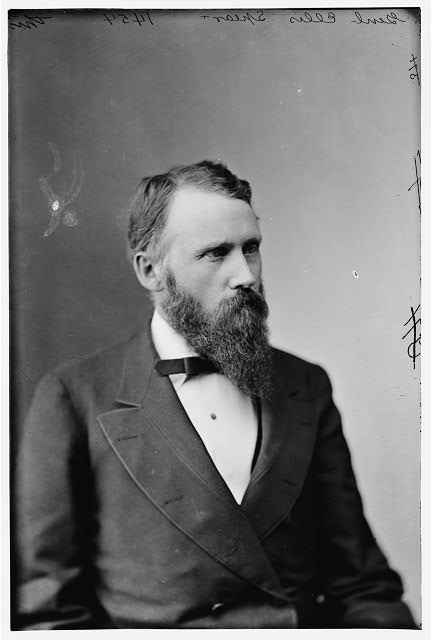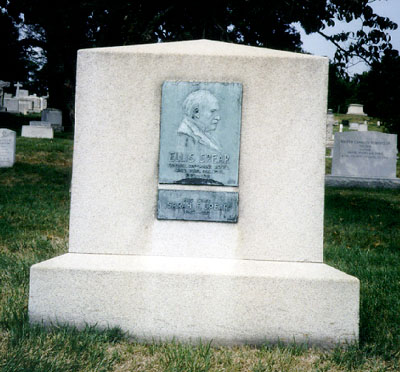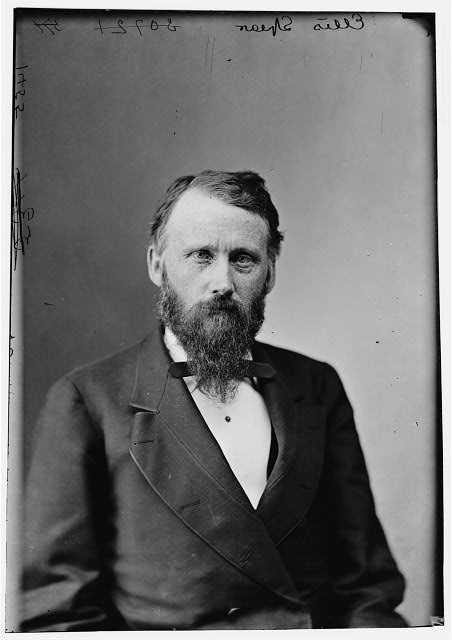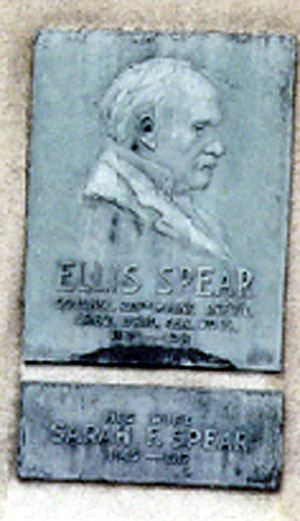Born at Warren, Knox County, Maine, October 15, 1834, he received an AB degree from Bowdoin College in 1858.
He was appointed Captain, 20th Maine Volunteer Infanry, August 29, 1862; Major, August 29, 1863; Colonel, May 29, 1865. He was brevetted Lieutenant Colonel of Volunteers, September 1864 for “gallant and distinguished services at the Battle of Peebles Farm, Virginia,” and Colonel of Volunteers, March 29, 1865 for “faithful an meritorious service during the campaign ending in the surrender of the Army of Northern Virginia.” He was honorably mustered out on July 16, 1865.
Thereafter he was Assistant Examiner of Railway and Civil Engineering, 1865-68; Examiner, 1868-72; Examiner in Chief, 1872-74; U.S. Patent Office as Assistant Commissioner of Patents, 1874-76. He engaged in private business from 1876 until January 1877, when he was appointed Commissioner of Patents of the U.S. He was then Vice President, Washington Loan and Trust Company, Washington, D.C. and the Equitable Cooperative Building Association and an Overseer at Bowdoin College.
He made his home in Washington, D.C. where he died on April 3, 1917. He was buried in Section 2 of Arlington National Cemetery. His wife, Sarah F. Spear (1845-1917), is buried with him.
Another note of interest: During the Civil War he served in the 20th Maine with Joshua Lawrence Chamberlain and was present with the Regiment at the Battle of Gettysburg in July 1863, when they defended the Union flank from a Confederate assault on Little Round Top.

Ellis Spear, commissioner of patents, born in Warren, Knox County, Maine, 15 October, 1834. He was graduated at Bowdoin in 1858, entered the National Army in August, 1862, as a Captain of Maine volunteers, was promoted through the intermediate grades to Colonel, and from October, 1863, till February, 1865, commanded a regiment in the Army of the Potomac. He was brevetted for his services at Peebles Farm, where he was in command of a brigade while holding
the rank of Major, subsequently received the brevet of Colonel for gallantry in action, and on 9 April, 1865, that of Brigadier General. He served for a short time as inspector of division, and at the close of the war was in command of a brigade. He was mustered out in July, 1865.
In November of that year he became an assistant examiner of railway and civil engineering in the United States patent office. He was appointed examiner in 1868, examiner-in-chief in the same bureau in 18’72, and assistant commissioner of patents in 1874. In 1876 he resigned and engaged in private business till January, 1877, when he was appointed Commissioner of Patents. He held this office till November, 1878, when he again resigned. He has since been in practice as an attorney and solicitor in patent cases.
Ellis Spear
The next Commissioner was General Ellis Spear (1834-1917) of Maine, who was studying for the bar when the Civil War began. He raised a company of infantry which was assigned to the 20th Maine Infantry. At the end of the war he was a 31-year-old Brevet Brigadier General with an invalid wife and two little children.
He cut the brass buttons from his military uniform, removed the shoulder straps and hat cord, and, thus attired in the best clothes he had, sought a civilian position as a patent examiner. He was hired as an examiner in 1865, was made Assistant Commissioner in 1874, and had resigned his office and practiced patent law for only two months when he was appointed Commissioner on January 29, 1877. After he left office, he practiced as a patent attorney in Washington until past the age of 80.

Michael Robert Patterson was born in Arlington and is the son of a former officer of the US Army. So it was no wonder that sooner or later his interests drew him to American history and especially to American military history. Many of his articles can be found on renowned portals like the New York Times, Washingtonpost or Wikipedia.
Reviewed by: Michael Howard


